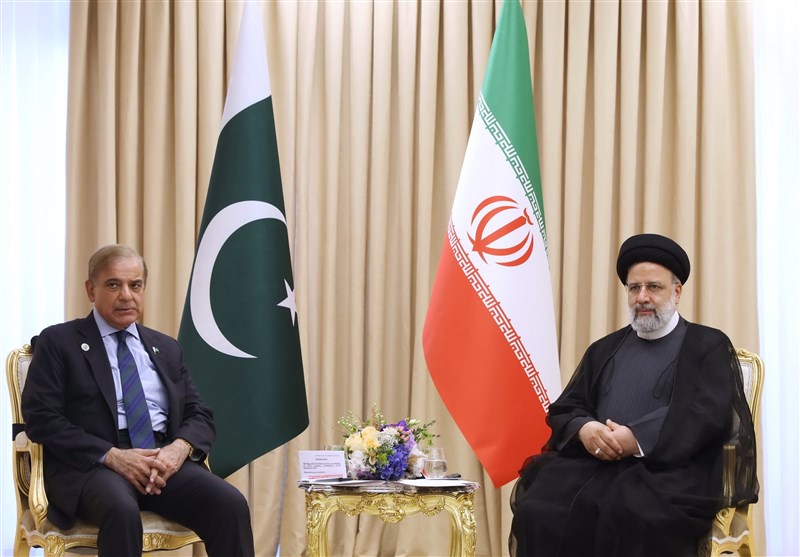Iran's President Ebrahim Raisi and Pakistani Prime Minister Shehbaz Sharif have expressed their readiness to expand economic and energy ties.
In a telephone conversation, Raisi referred to the friendly and long-standing relationship between Tehran and Islamabad and hoped to develop bilateral ties further, the official website of the Iranian president reported on April 13.
Raisi stressed that strengthening relations with neighbors and developing relations with Islamic countries is one of the main approaches of his administration.
The Pakistani premier also noted the importance of working with Iran to boost economic cooperation.
On the same day, Pakistani Minister of State for Foreign Affairs Hina Rabbani Khar and Iranian Foreign Minister Hossein Amir-Abdollahian met during the Fourth Meeting of Foreign Ministers of Afghanistan's Neighboring States, held in Samarkand, Uzbekistan.
The two sides agreed to remain engaged on matters of regional and global significance, including Afghanistan. Noting the vast scope of bilateral trade and economic cooperation, both countries agreed to identify new sectors through various institutional mechanisms, according to Radio Pakistan website.
They expressed satisfaction over the completion of the Polan-Gabd/Gwadar electricity transmission line that will cater to the energy needs in the border regions of the two countries.
The Pakistani minister reiterated her country’s desire to strengthen bilateral ties in all areas of mutual interest, particularly trade and economy, energy, security and regional connectivity.
She underscored the importance of expedited operationalization of border markets to uplift the socio-economic well-being of the people of the border region.
Tehran and Islamabad have taken several steps to strengthen economic and energy cooperation in the recent months.
In January, Pakistan and Iran signed 39 memorandums of understanding (MoU). The officials of the two countries agreed to remove hurdles, increase bilateral legal trade and implement the barter agreement for achieving bilateral trade targets.
Among others, the two sides agreed to open an additional border crossing point. The two countries also vowed steps to increase bilateral trade to $5 billion annually, as the current trade volume stands at around $1.5 billion per annum.
Also in January, Tehran urged Islamabad to construct a portion of the Iran-Pakistan (IP) Gas Pipeline Project on its territory until February-March 2024, which was agreed by the sides, or pay $18 billion in fine. Iran has already completed its segment of the pipeline, which begins from the gas field and stretches to the Pakistan border.
Earlier in October 2022, the Pakistani government had announced that Islamabad was “sincerely considering different solutions to resume work on the IP Gas Pipeline Project in order to meet the country’s energy needs on a sustainable basis while following the internal laws.”
The Iranian ambassador to Pakistan, Mohammad Ali Hosseini, also expressed Tehran’s readiness to provide petrol, electricity and natural gas to Islamabad at cheap rates to help Pakistan cope with gas and petrol shortage.
Boosting energy ties was a key topic of discussion when the Pakistani Prime Minister and the Iranian President met during the Shanghai Cooperation Summit (SCO) in Samarkand in September 2022.







 Russian peacekeeping forces, deployed in the Karabakh (Garabagh) region of Azerbaijan since 2020, have commenced their withdrawal from the area.
Russian peacekeeping forces, deployed in the Karabakh (Garabagh) region of Azerbaijan since 2020, have commenced their withdrawal from the area.
 The number of evacuees from flooded areas in Kazakhstan has reached 97,852 people, including about 32,856 children since March 27.
The number of evacuees from flooded areas in Kazakhstan has reached 97,852 people, including about 32,856 children since March 27.
 Azerbaijan officially unveiled the logo for the upcoming 29th session of the Conference of the Parties to the United Nations Framework Convention o...
Azerbaijan officially unveiled the logo for the upcoming 29th session of the Conference of the Parties to the United Nations Framework Convention o...



